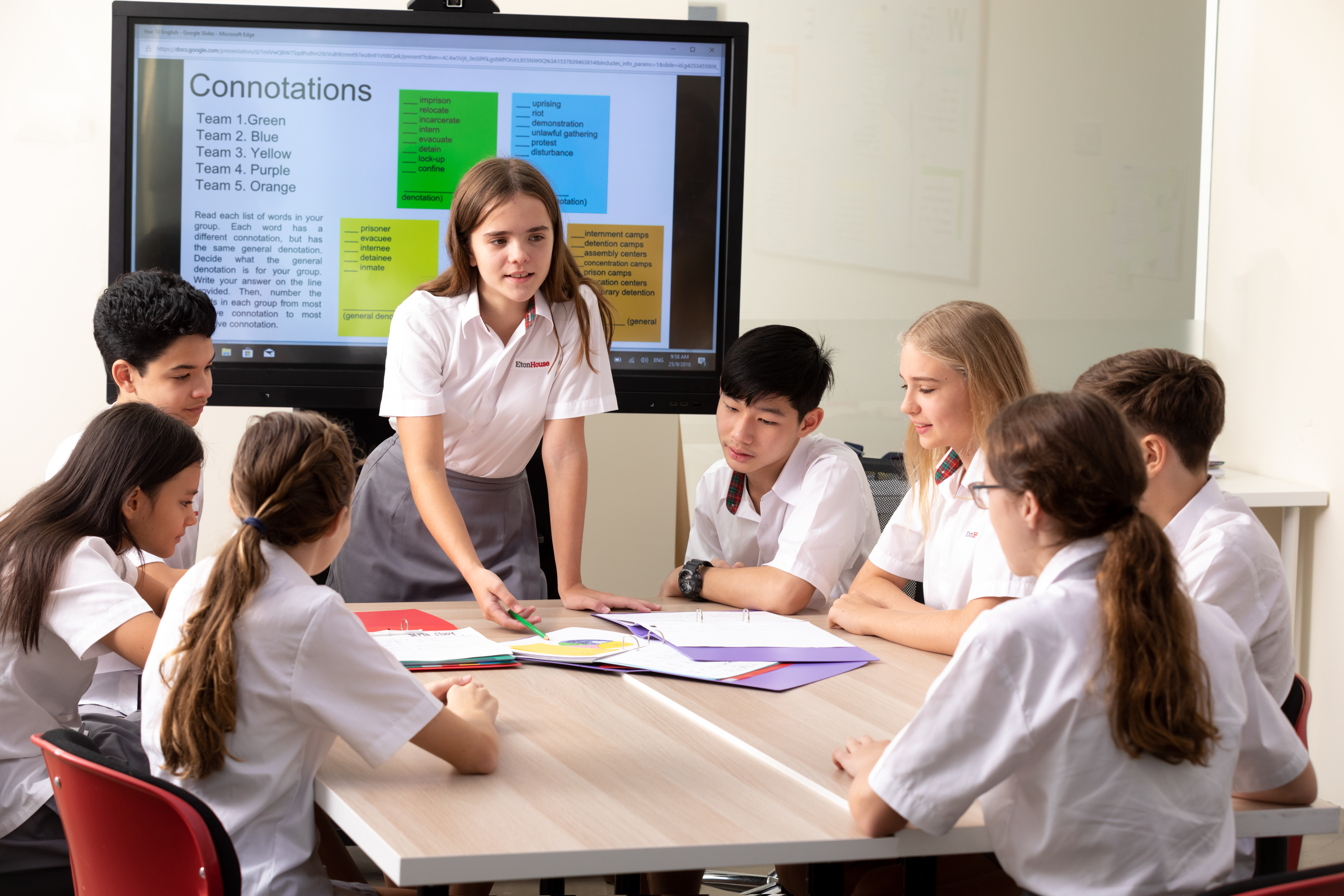-1.png)
EtonHouse Singapore
The English as an Additional Language (EAL) programme at EtonHouse International School caters to students whose native language isn't English and requires assistance to develop proficiency in the language. Students come from diverse backgrounds, and in keeping with the IBO's philosophy of intercultural understanding and respect, we recognise that learning an additional language together with maintaining the student's mother tongue is essential as language is our means of thinking and communicating. How do we get students well equipped in the language so that they can take an active role in the classroom and maintain a seamless pathway towards their higher education?
 In this article, we speak to Kieran Macken, EAL coordinator and teacher at EtonHouse Orchard to find out more. Kieran has a first class honours Masters degree in teaching English as a second language and more than 10 years experience teaching across primary and secondary. He has delivered teacher training workshops and seminars.
In this article, we speak to Kieran Macken, EAL coordinator and teacher at EtonHouse Orchard to find out more. Kieran has a first class honours Masters degree in teaching English as a second language and more than 10 years experience teaching across primary and secondary. He has delivered teacher training workshops and seminars.
You can listen to the podcast here.
To learn more about our EAL programme, visit EtonHouse International School Orchard.
What does the EAL programme in EtonHouse Orchard entail?
We have students from more than 30 countries at EtonHouse Orchard, and it makes us value the rich cultural diversity. Approximately 25% of the overall student cohort are either current EAL students or were former EAL students and have graduated from the program. Our overall mission is to support students across all areas of the curriculum in the most inclusive and least restrictive way possible. Additionally, we want to empower them to be active members of the EtonHouse community. At our school, we don't just value academic progress. There is a big emphasis on their social and emotional development as well. We understand that changing schools on its own is a tough enough experience. Many international students undergo the stress of leaving their friends in their native country, moving to a foreign land where they don't speak the language and going to a school where they are not well versed in the language. We understand how difficult it must be for students of the secondary school age, where hormones are raging, and they may not have an understanding of the different emotions they're going through.
What makes EtonHouse Orchard stand out is the small community which gives EAL students more opportunities to interact and integrate with different people. There is a collective approach for supporting our EAL students. I've worked in schools where due to their size, that isn't always possible.
What does the EAL programme in EtonHouse Orchard entail?
It differs between the primary and secondary curriculum. The primary EAL students get three hours of English language support weekly and follow a timetable, which is unlike the other foreign language classes like Spanish, Japanese and Mandarin. For secondary students, it is slightly different. They get a minimum of three hours of support, and due to examinations, they may also get an additional four hours of English language support depending on their proficiency, during their English periods. When they get EAL support during their mainstream subjects, the teachers are readily equipped to provide differentiated support for the students.
There was also an EAL club before the pandemic, which will commence once more restrictions are lifted. The overall focus of the club was to develop students’ listening and speaking skills through fun experiences like board games, etc. It is remarkable how proficient their English language can be when the elements of competitiveness are introduced.
How do we support EAL learners in the classroom?
In the English language classroom itself, there's a key focus on developing the four language skills of reading, writing, speaking and listening. There's also a focus on developing their vocabulary and grammatical accuracy. We place emphasis on collaboration between teaching staff to ensure project-based tasks are aligned across the curriculum. With that, the English language department is fully prepared to support learners in their mainstream subjects as well.
Teachers can utilize different strategies during lessons:
Incorporate visuals- pictures, images, diagrams, or even gifs and memes. They can be universally understood and their meaning is not impeded by a language barrier.
Simplified language- use simple and short sentences especially when giving instructions. It can be displayed in text on powerpoint slides
What influences that duration of the programme?
It depends on the student’s learning abilities and foundation. The most significant factor is their language level upon admission to the school. Potential EAL students are given an English language assessment to determine their current level of English. All our assessments are conducted in line with the Common European Framework of Reference for Languages (CAFR). An internationally recognized standard framework for measuring language ability. It is a six-point scale from grades A1 to C2. An A1 learner will be a complete beginner, whereas a C2 learner would have already mastered the language. Majority of our learners are either A2 or B1, which would be elementary to intermediate. We frequently assess our students to measure their progress. Students usually graduate from the program once they get to a B2 level, which would be upper-intermediate. This is the recommended level required for students to take IGCSE examinations examinations in year 11.
How can we support educators who are teaching EAL students?
The collaboration between the entire staff is essential, you need to ensure that the content is aligned, where language teachers are aware of what's being taught in each of their subjects so that they can provide the right support. Teachers can also draw on students' peer support during their lessons. It is ideal pairing or grouping EAL students with supportive students who can be their language role model or guidance. This collaboration is useful, especially when they share the same first language. It is crucial for developing language and facilitating friendships that might foster language development.
Thankfully, there are many resources online that can provide assistance:
We hope this article is helpful to many parents who struggle with their child mastering the English language. It is not the most straightforward language to learn because it consists of many combinations, rules and pronunciations. Hence, it can be a challenge to teach, read, and write the language itself, putting students at a disadvantage in school. We want to ensure that students can overcome these struggles and reach their fullest potential through proper guidance and practice.
To learn more about our EAL programme, visit EtonHouse International School Orchard.


